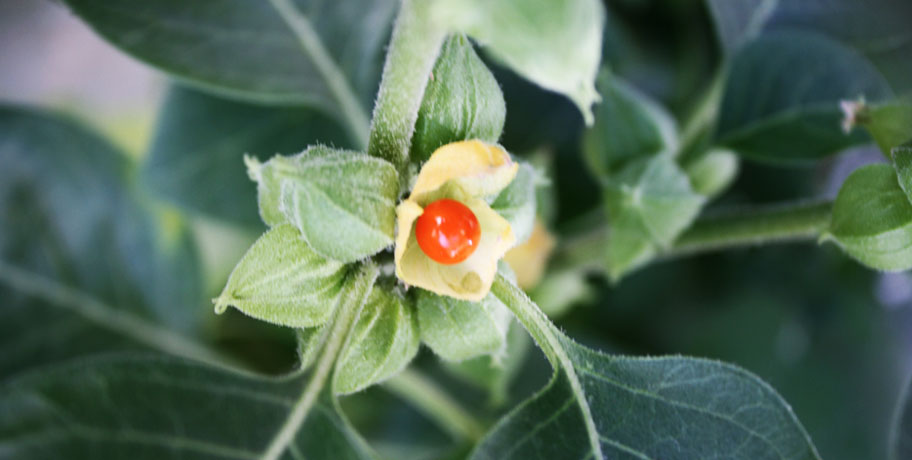
Chronic Stress, Cortisol, and “Adrenal Fatigue”
Chronic, long-term stress is extremely harmful to health. During stress, the body goes through several phases: An acute phase where the adrenal glands produce a lot of cortisol, which, if the stress continues, can lead to a chronically high production of cortisol. However, with prolonged chronic stress, the adrenal glands may end up producing too little cortisol, often referred to in everyday language as “adrenal fatigue” or “tired adrenals.” There is also a condition called Addison’s disease, where the adrenal glands are unable to produce sufficient amounts of cortisol and aldosterone. People with “tired adrenals” can respond dramatically to small doses of pure adrenaline hormones, which is not always desirable.
Adaptogens and Stress
Adaptogens are active substances that can increase an organism's resistance to stressors that affect homeostasis. In essence, an adaptogen is a biological substance that positively supports an individual’s ability to cope with various stress factors. The advantage of adaptogens is that they can both increase and decrease cortisol. For example, in cases of acute stress, Ashwagandha and Rhodiola, two important adaptogens, can lower both blood sugar and cortisol levels.
With prolonged stress, so-called beta-lipoproteins are produced, which reduce the energy available to cells by blocking the enzyme hexokinase. This is one reason why chronic stress can lead to abnormal fatigue that cannot be remedied by sleep. Adaptogens reduce the accumulation of beta-lipoproteins and prevent the blocking of hexokinase, ensuring that cells receive adequate energy to function optimally.
Adaptogens, Stress, and Blood Sugar
Adaptogens also work on a cellular level rather than just affecting the cortisol response directly. A person exposed to a stressor will still have an adrenal response, but the effect on the body's cells will be less “negative” with the help of adaptogens.
Stress can unfortunately have a negative impact on blood sugar, but adaptogens can improve the body’s glucose response to stress (adrenaline and cortisol). They also enhance cardiovascular health by counteracting catecholamines produced during long periods of stress. Furthermore, adaptogens aid in protein synthesis and significantly reduce recovery time after exercise, making them beneficial for amateur athletes looking to improve their recovery.
One of the most important functions of adaptogens is their positive effect on ACTH (adrenocorticotropic hormone). Low cortisol levels are often likely due to insufficient secretion of ACTH.
Adaptogens Do Not Cause Fatigue
The herbs in Adrenal Strength and Adrenal Response will not make a person with adrenal fatigue more tired. On the contrary, they will help them manage all forms of stress better. However, it is always best to identify the source of stress and first consider diet, physical activity, sleep, relationships, work situation, toxins, possible allergies, and so on.
Feel free to read our article on the difference between Adrenal Strength and Adrenal Response.
Author
Scientific references and sources
Show referenceChandrasekhar K, Kapoor J, Anishetty S. A prospective, randomized double-blind, placebo-controlled study of safety and efficacy of a high-concentration full-spectrum extract of ashwagandha root in reducing stress and anxiety in adults. Indian J Psychol Med. 2012 Jul;34(3):255-62.
Dey A, Chatterjee SS2, Kumar V. Triethylene glycol-like effects of Ashwagandha (Withania somnifera (L.) Dunal) root extract devoid of withanolides in stressed mice. Ayu. 2018 Oct-Dec;39(4):230-238.
Abu Bakar MH, Azmi MN, Shariff KA, Tan JS. Withaferin A Protects Against High-Fat Diet-Induced Obesity Via Attenuation of Oxidative Stress, Inflammation, and Insulin Resistance. Appl Biochem Biotechnol. 2019 May;188(1):241-259.
Salve J, Pate S, Debnath K, Langade D. Adaptogenic and Anxiolytic Effects of Ashwagandha Root Extract in Healthy Adults: A Double-blind, Randomized, Placebo-controlled Clinical Study. Cureus. 2019 Dec 25;11(12):e6466.
Bhattacharya A, Muruganandam AV, Kumar V, Bhattacharya SK. Effect of poly herbal formulation, EuMil, on neurochemical perturbations induced by chronic stress. Indian J Exp Biol. 2002 Oct;40(10):1161-3.
Mirjalili MH, Moyano E, Bonfill M, Cusido RM, Palazón J. Steroidal lactones from Withania somnifera, an ancient plant for novel medicine. Molecules. 2009 Jul 3;14(7):2373-93.
Gorelick J, Rosenberg R, Smotrich A, Hanuš L, Bernstein N. Hypoglycemic activity of withanolides and elicitated Withania somnifera. Phytochemistry. 2015 Aug;116:283-289.
Andallu B, Radhika B. Hypoglycemic, diuretic and hypocholesterolemic effect of winter cherry (Withania somnifera, Dunal) root. Indian J Exp Biol. 2000 Jun;38(6):607-9.
Candelario M, Cuellar E, Reyes-Ruiz JM, Darabedian N, Feimeng Z, Miledi R et al. Direct evidence for GABAergic activity of Withania somnifera on mammalian ionotropic GABAA and GABAρ receptors. J Ethnopharmacol. 2015 Aug 2;171:264-72.
Cooley K, Szczurko O, Perri D, Mills EJ, Bernhardt B, Zhou Q, Seely D. Naturopathic care for anxiety: a randomized controlled trial ISRCTN78958974. PLoS One. 2009 Aug 31;4(8):e6628.
Andrade C, Aswath A, Chaturvedi SK, Srinivasa M, Raguram R. A double-blind, placebo-controlled evaluation of the anxiolytic efficacy ff an ethanolic extract of withania somnifera. Indian J Psychiatry. 2000 Jul;42(3):295-301.
Samadi Noshahr Z, Shahraki MR2, Ahmadvand H, Nourabadi D, Nakhaei A. Protective effects of Withania somnifera root on inflammatory markers and insulin resistance in fructose-fed rats. Rep Biochem Mol Biol. 2015 Apr;3(2):62-7.
Li W1, Zhang X, Chen R, Li Y, Miao J, Liu G, Lan Y, Chen Y2, Cao Y3. HPLC fingerprint analysis of Phyllanthus emblica ethanol extract and their antioxidant and anti-inflammatory properties. J Ethnopharmacol. 2020 May 23;254:112740. doi: 10.1016/j.jep.2020.112740. Epub 2020 Mar 6.
Molokovskiĭ DS, Davydov VV, Tiulenev VV. The action of adaptogenic plant preparations in experimental alloxan diabetes. Probl Endokrinol (Mosk). 1989 Nov-Dec;35(6):82-7.
